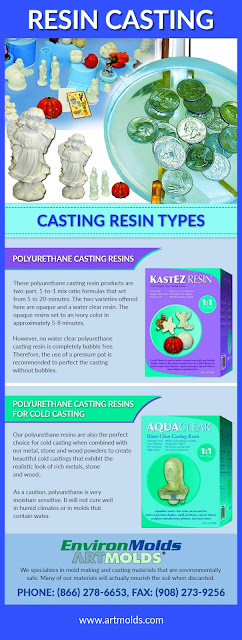A mold that accurately reproduces the shape and details of a
model can be used for rubber or resin casting, as needed. In fact, depending on the type of mold and the casting
process used, a mold can be used over and over to make multiple casts of the
same object.
However, every mold comes with a finite use life. It may end
up deformed, tarnished or even cracked and broken after repetitive use. Would
you then go back to making a mold of the object all over again? In case of a
life cast, does it make sense to go to the trouble of making a body mold again
and again?
Anticipating such scenarios, experienced mold makers prefer
to make a secondary mold before starting the casting itself. This copy can be
used to continue with the casting even when the original one is spoiled or
damaged. Moreover, it is possible to vary the material for making the secondary
mold – like choosing polyurethanes or
rubbers - thus extending the life of temporary alginate molds and the like.
Secondary molds bring another benefit into play. If the
original mold has minor faults like bubbles, wrinkles or spots, the secondary
mold opens up the possibility of correcting the flaws by improvising on the
original piece. In fact, a mold maker can make one secondary mold after another
till all the defects are corrected and the mold becomes perfect in every sense.
Therefore, mold makers are always advised to make a
secondary mold just to be on the safe side at least.
You can source all your mold making and casting requirements
easily online from www.artmolds.com.



0 Response to "Why You Need A Secondary Mold?"
Post a Comment